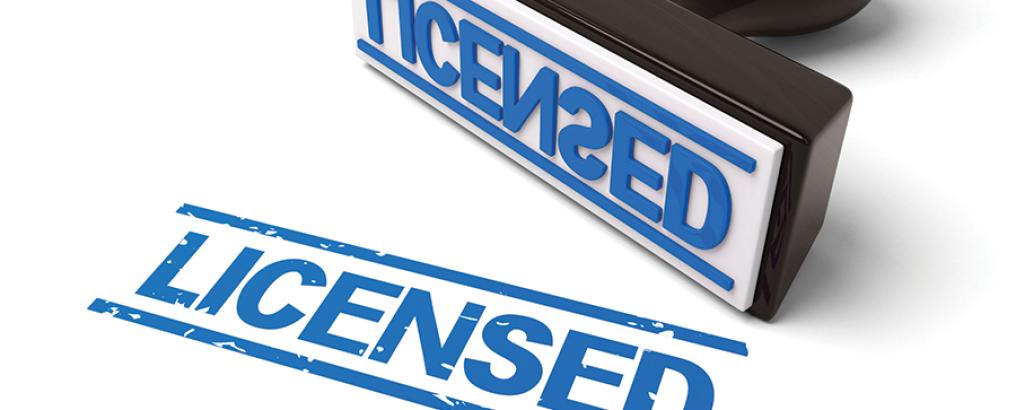Regulators at the Hong Kong Institute of Chartered Secretaries’ latest Annual Corporate and Regulatory Update (ACRU) conference highlighted the roles directors, professional practitioners and regulators need to play to ensure good governance standards are maintained in Hong Kong.
While the ultimate responsibility for the corporate governance of a company lies with its board of directors, for good governance standards to be maintained many different players, including shareholders, corporate managers, professional practitioners and regulators, need to work together to achieve that common goal. The Institute's 17th ACRU conference, held on 20 May 2016 at the Hong Kong Convention and Exhibition Centre, focused on the responsibilities of directors, professional practitioners and regulators in upholding good governance and effective compliance.
The role of directors
Carlson Tong, Chairman of the Securities and Futures Commission (SFC), pointed out in his congratulatory address to ACRU 2016 that directors and senior management are responsible for creating the right corporate culture. 'When it comes to raising the bar for corporate governance, I cannot stress enough how critical it is that boards of directors and senior management take the lead. At the end of the day, these are the only people who can set the tone for the right corporate culture,’ he said.
1. Directors duties
Karen Ho, Consultant (Company Law), Companies Registry, emphasised in her ACRU presentation that the law surrounding directors’ duties of care, skill and diligence was clarified in the rewrite of the Companies Ordinance (Cap 622). Under Section 465 of the law, directors are subject to mixed objective and subjective tests of their duties of care, skill and diligence. Directors will be expected to exercise the care, skill and diligence that would be expected of someone carrying out their role (this is the objective test), and based on the general knowledge, skill and experience that the director has (this is the subjective test). The subjective test means that a director – and this applies to non-executive as well as executive directors – with a higher degree of expertise or experience can be held to a higher standard of care, skill and diligence.
Stephen Jamieson, Senior Vice-President and Head of Enforcement, Listing Division, Hong Kong Exchanges and Clearing Ltd (the Exchange), made the point that directors in Hong Kong are also subject to common law fiduciary duties. Moreover, the listing rules make explicit directors’ duties to:
- act honestly and in good faith in the interests of the issuer as a whole
- act for proper purpose
- be answerable to the issuer for the application or misapplication of its assets
- avoid conflicts of interest and duty, and
- disclose fully and fairly their interests.
Mr Jamieson pointed out that a failure of directors to fulfill their duties continues to be a relatively common factor behind breaches of the listing rules – this is one of the top five themes that the Exchange focuses on in its enforcement work. In fact, 71% of investigations in 2015 included one or more of these themes:
- directors’ duties
- companies delinquent in publishing accounts resulting from internal control deficiencies
- heavily qualified accounts
- failure to address the Exchange's concerns in a timely manner after trading resumption, and
- failure to cooperate with the Exchange's investigation.
He added that this is not only a message for directors, but also for company secretaries who are responsible for ensuring that directors are aware of their duties and responsibilities – in particular their duty to ensure full compliance with the listing rules and their responsibility for ensuring internal controls.
2. Internal controls
Regulators in Hong Kong have paid increasing attention to the role of good internal controls in ensuring compliance with the listing rules. Mr Jamieson stressed that deficient internal controls are often an underlying factor in many disciplinary cases handled by the Exchange. He reminded ACRU attendees that the requirements on internal controls in Hong Kong have been tightened. For example, the Corporate Governance Code requires listed companies to establish and maintain appropriate and effective internal control systems, and requires:
- management to provide a confirmation to the board on the effectiveness of the internal control system, and
- the board to review the effectiveness of the internal control system at least annually and report to shareholders that it has done so in its Corporate Governance Report.
Mr Jamieson cited a recent disciplinary case as an example of the risks to companies of poor internal controls. In March 2013, Interest-free and unsecured financial assistance was provided to the executive director and chairman of Huazhong In-Vehicle Holdings Company Ltd, together with some of his associates. The assistance was provided without any written agreements and no announcement was made regarding the matter until September 2013. A statement was then issued that the transactions were ratified on the basis that the financial assistance was provided on 'normal commercial terms’.
The directors of Huazhong In-Vehicle Holdings failed to:
- disclose the transactions in a timely manner
- seek shareholders’ approval of the connected transactions
- ensure accurate disclosure (the financial assistance was not provided on 'normal commercial terms’)
- act in the interest of the company, and
- act for a proper purpose.
However, the underlying issue highlighted by Mr Jamieson was the failure of the directors to ensure that the company had adequate and effective internal controls in place to respond to such a misapplication of the company's assets. 'Underpinning all of this is the deficiencies in internal controls,’ he said. 'Poor internal controls, or the failure to enforce internal control procedures, can lead to rule breaches and disciplinary action.’
His advice, therefore, to companies is to ensure that directors, senior management and operation-level staff who are involved in compliance matters have experience and proper training. Moreover, internal control procedures should be reviewed regularly and communicated to everyone in the organisation.
In the case of Huazhong In-Vehicle Holdings, in addition to a public censure the company had to comply with a number of measures designed to ensure that the underlying internal control deficiencies were addressed. These included:
- an internal control review
- the appointment of a compliance adviser for two years, and
- training for all directors on listing rule compliance, including director's duties, and notifiable and connected transactions.
The role of regulators
This year's ACRU conference confirmed the recent trend for regulators in Hong Kong to maintain both 'hard’ and soft’ approaches to regulating the market. 'Soft’ regulation, explained Michael Duignan, Senior Director, Corporate Finance Division, SFC, is about helping companies to change behaviour.
Mr Duignan heads the Corporate Regulation Team at the SFC which was set up in December 2013 to, among other things, encourage a compliance culture among listed companies. Enforcement actions give a regulatory system its credibility, but regulators can also help to identify and prevent problems before they escalate into major compliance failures.
Michael Duignan commented in his ACRU presentation that regulators, in their disciplinary work, tend to focus on the more egregious cases of poor governance, but should bear that the majority of companies abide by the rules. 'I’m usually deep down in the lake where the sharks swim, but I try to remember that there are many good companies in the market,’ he said.
In his congratulatory address to the ACRU 2016 conference, SFC Chairman Carlson Tong reaffirmed the desire of the SFC to seek a constructive dialogue with companies in Hong Kong. 'Every year, we at the SFC look forward to ACRU as a valuable opportunity to communicate with those of you who have direct influence on corporate governance and compliance practices in the markets we regulate. ACRU allows us to explain our work and the rationale behind it. We thank the HKICS for its efforts to put together this important industry event,’ he said.
Another key function of regulators is to monitor the effectiveness of the current regulatory regime, particularly as new market trends emerge. Megan Tang, Senior Director, Corporate Finance Division, SFC, discussed some of the trends the SFC has been monitoring over the last year. She noted that 2015 was a turbulent year for the market, and not only because volatility in the PRC stock market. The SFC is concerned about the level of share price volatility, particularly of newly listed GEM companies. On average, the price of shares newly listed on the GEM market last year increased seven times in the first day of trading (see 'Most volatile newly listed GEM companies in 2015’ below). This is one of the reasons, Ms Tang added, that the SFC is conducting a thorough review of the GEM board.
Similar increases in some stocks has been observed on the Main Board (see 'Market snapshot: 2013–2015’ below). Ms Tang pointed out that this trend might be connected with the large number of companies with concentrated shareholdings. 'When a stock is held by a small number of insiders it is easier for them to increase the share price,’ she said. This can create more interest from other investors to buy the shares and the upward pressure continues. The SFC will continue to issue high share concentration warnings and monitor this issue.
The role of company secretaries
This year's ACRU confirmed that regulators in Hong Kong are keen to ensure that the role of the company secretary is utilised to its full potential – particularly as the officer responsible for compliance and advising directors on corporate governance. 'The company secretary does have an important role to play’, said Mr Jamieson in his ACRU presentation. He acknowledged that the role can be different for different companies, but stressed that company secretaries need to ensure that directors are aware of their duties and that good corporate governance standards are maintained.
He also warned that company secretaries, as members of senior management, are subject to the sanctions regulators may impose for breaches of the rules. 'Actions against company secretaries themselves are rare, but their support for the board is essential because it is often imperfect internal controls and lack of knowledge of directors’ duties that lead to breaches of the rules,’ he said.
Mr Jamieson added that the regulatory framework in Hong Kong recognises the importance of the company secretarial role. For example Section F of the Corporate Governance Code states that, among other things, the company secretary is responsible for:
- supporting the board by ensuring good information flow within the board, and that board policy and procedures are followed, and
- advising the board through the chairman and/or the chief executive on governance matters, and facilitating induction and professional development of directors.
The listing rules require that all directors should have access to the advice and services of the company secretary to ensure that board procedures, and all applicable law, rules and regulations, are followed. Listed companies are required under the listing rules to appoint a company secretary with the requisite knowledge and experience, and who is capable of discharging the functions of a company secretary (Main Board Rule 8.17; GEM Rule 5.14).
The Exchange works closely with company secretaries since they are usually the contacts for listing rule compliance. Mr Jamieson discussed a recent case which demonstrates the importance of this function. The Exchange made enquiries via the company secretary, who was the authorised person for regulatory enquiries, but found that the company did not respond. This resulted in the Exchange launching an investigation into whether the issuer and its directors were failing to respond in a timely manner to the Exchange's enquiries. 'It turned out,’ Mr Jamieson said, 'that the company secretary had not informed the directors about the Exchange's enquiries’.
The Institute's 17th Annual Corporate and Regulatory Update was held on 20 May at the Hong Kong Convention and Exhibition Centre. The event attracted a record attendance of 1,700 participants.
More photos of the event are available on the HKICS website: www.hkics.org.hk.
Market snapshot: 2013-2015

Volatility of the newly listed GEM companies

SIDEBAR: Compliance update
The Institute's ACRU conference is one of the few forums in Hong Kong where regulators and market participants can engage in a direct dialogue about regulatory compliance. CSj highlights the major compliance issues raised at this year's ACRU.
Trading halts and delisting policy
Christine Kan, Managing Director, Head of Compliance and Monitoring, Hong Kong Exchanges and Clearing Ltd, addressed both the issue of minimising trading halts and the possibility of a policy change on delisting procedures in her ACRU presentation. She emphasised that avoiding unnecessary trading halts comes down to good planning. Companies should seek early consultation with the Exchange on complex or controversial issues and should get any necessary announcements ready well in advance. She added that the Exchange turns down many requests for trading halts which are deemed to be unnecessary. For example where a company requests a trading halt to make an announcement relating to the signing of an agreement. The Exchange urges companies to enter agreements outside of trading hours, where possible.
This issue also came up in the presentation by Pinky Tse, Director, Corporate Finance Division, SFC. She recommended ACRU attendees look up the latest Takeovers Bulletin (available on the SFC website: www.sfc.hk) which addresses the issue of trading suspensions. Ms Tse heads the Takeovers Executive – the team at the SFC monitoring compliance with the Codes on Takeovers and Mergers and Share Buy-Backs. Suspensions of trading are often requested in takeover situations, but the Takeovers Bulletin makes it clear that trading suspensions designed to facilitate negotiations between parties are not acceptable.
Backdoor listing and shell activities
Christine Kan also addressed the issue of backdoor listings and shell activities. There is currently a significant demand for shell companies in Hong Kong as potential vehicles for backdoor listings. 'Backdoor listings damage the quality of market,’ Ms Kan said. She confirmed that the Exchange is reviewing the adequacy of the existing rules (such as the rules on reverse takeovers, cash companies and sufficiency of operations) in this area.
ESG reporting
Katherine Ng, Senior Vice-President, Head of Policy, Listing Division, the Exchange, addressed the issue of ESG disclosure in Hong Kong. This issue is covered in the second cover story, authored by Ms Ng, in this edition of CSj (see pages 14–17).
New Companies Ordinance
Just over two years ago, the new Companies Ordinance (Cap 622) was implemented. Transition to the new regime has been largely smooth, but Karen Ho of the Companies Registry addressed some of the common legal issues encountered since the new law was implemented in 2014. Her colleague, Hilda Chang, Deputy Registry Manager (Registration), Companies Registry, tackled the new rules under the new Companies Ordinance relating to the delivery of annual returns. She also discussed common errors in documents filed with the Companies Registry.
Electronic filing
The Companies Registry has been transitioning from paper-based services to electronic services and last year it launched its full-scale electronic filing service. Wendy Ma, Deputy Registry Manager, Companies Registry, gave ACRU participants an update on the latest developments in this area. She focused on the new 'Company Search Mobile Service' which enables users to conduct company searches using smartphone and mobile devices (available at: www.mobile-cr.gov.hk).
Hong Kong's proposed new OFC regime
Salina Yan JP, Deputy Secretary for Financial Services and the Treasury (Financial Services), FSTB; and Joyce Ho, Principal Assistant Secretary for Financial Services and the Treasury (Financial Services), FSTB; discussed the new open-ended fund company structure in Hong Kong. This issue is covered in further detail on pages 30–33 of this edition of CSj.
Insolvency reform
Hong Kong's insolvency regime is set out in the old Companies Ordinance (Cap 32) which has been renamed the Companies (Winding up and Miscellaneous Provisions) Ordinance. This legislation is currently under review and Alvin Sin, Senior Solicitor, and Coleman Wong, Senior Solicitor, Official Receiver's Office, devoted their ACRU presentations to an overview of the major amendments to Hong Kong's insolvency regime contained in the Companies (Winding Up and Miscellaneous Provisions) (Amendment) Bill 2015. This Bill, the speakers explained, is currently under review by Hong Kong's Legislative Council and is expected to be passed within this legislative term.





